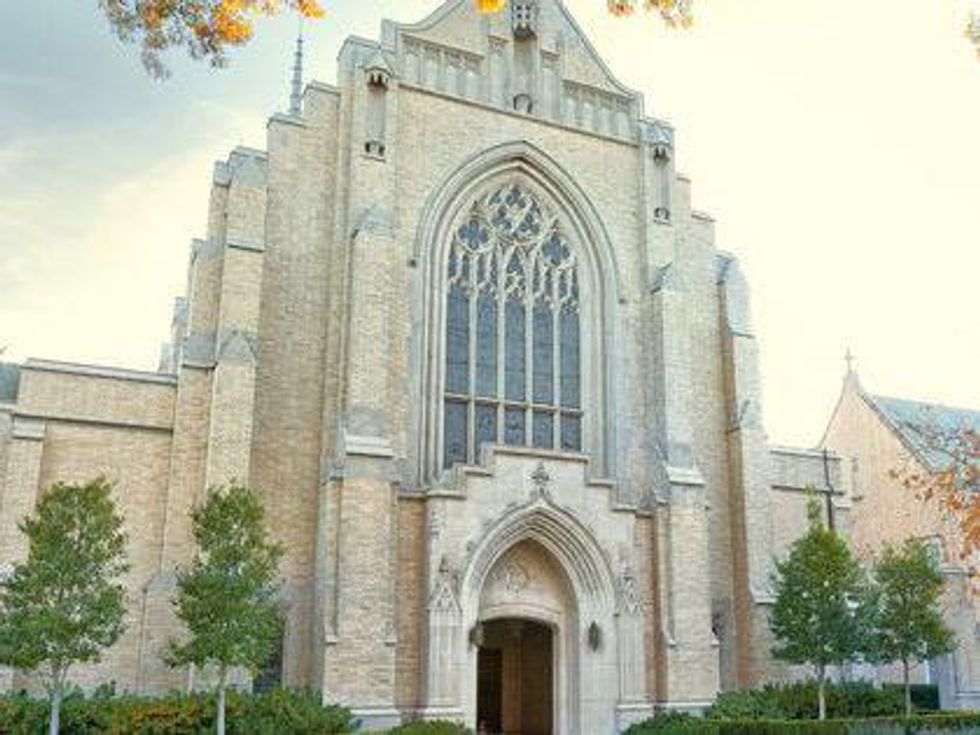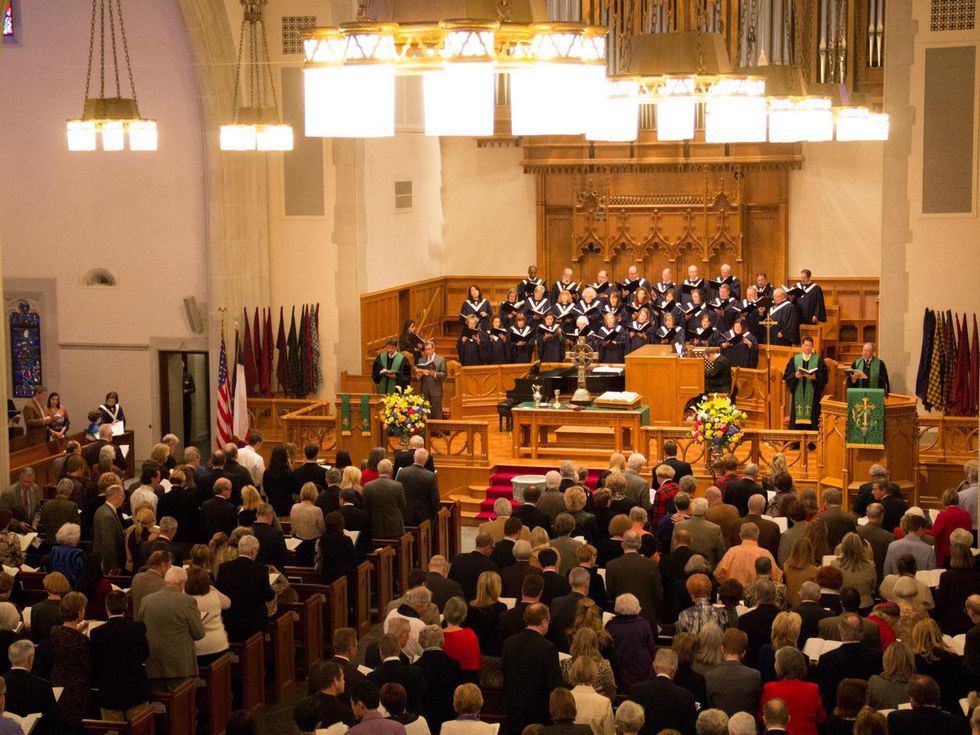Where Religion Meets Real Estate
Highland Park Presbyterian Church sues for control of its $30 million property
When Highland Park Presbyterian Church was founded in 1926, the world was a very different place than it is today. The Park Cities property on McFarlin and University boulevards was worth a mere $60,000, and HPPC was a willing member of the Presbyterian Church of the United States.
Fast forward to 2014: The property is worth $30 million, and HPPC has left the national Presbyterian denomination for a smaller, more conservative sect. The Presbyterian Church (USA) believes it should retain ownership of HPPC's church property, but that isn't sitting well with Highland Park Presbyterian, which has 4,000 active members and is one of the largest Presbyterian churches in America.
The pious parties had been engaged in mediation, but those talks broke down before a settlement was reached.
To retain control of the prime Park Cities property, Highland Park Presbyterian is suing Grace Presbytery, the regional affiliate of Presbyterian Church. The pious parties had been engaged in mediation, but those talks broke down last month before a settlement was reached. A jury trial date has been set for October 20, 2014.
It's a complicated case that, ironically, has much in common with HPPC's reason for splitting with the Presbyterian Church. It's all a matter of interpretation.
Origins of the split
HPPC left the Presbyterian Church mainly because of differing interpretations of Bible passages related to homosexuality. The Presbyterian Church voted in 2011 to allow people in same-sex relationships to be ordained as pastors.
Following that vote, HPPC decided to leave PCUSA and cleave to the more conservative Covenant Order of Evangelical Presbyterians, which doesn't support same-sex clergy or assert control over member churches' property.
Now, HPPC and PCUSA have different interpretations of their own relationship and what it means for Texas churches to be part of an ecclesiastical governing body. According to the Presbyterian Church, its member churches voluntarily place their property in a trust "for the use and benefit of the Presbyterian Church." Thus, when a member church ceases to be a member, its property is no longer benefiting PCUSA if it stays with a church in a different denomination.
A matter of interpretation
The Presbyterian Church has outlined a process for members to leave the denomination and either retain or return control of the property back to the PCUSA. Only one former Grace Presbytery congregation has followed this protocol and kept ownership of its church property.
HPPC said that the only financial assistance the Presbyterian Church has ever provided was a $7,500 check in 1927 to assist with the property's down payment.
However noble an idea that may be, Highland Park Presbyterian asserts that the trust clause isn’t legally enforceable under the U.S. Constitution or Texas state laws. The deeds to all church property list the owner in title as "Highland Park Presbyterian Church, a Texas corporation."
"We believe that we have the right to own and control our church property, and we simply want to clarify that," said HPPC in a statement to CultureMap. "We went to court to accomplish this, because we felt we had no other viable option."
The Presbyterian Church is shoring up its claims to the coveted property and has enlisted a small army of property law experts who favor its interpretation of the trust clause. "HPPC's decision to join [a new denomination] was a deliberate attempt to nullify Grace Presbytery's property rights," the Presbyterian Church says in its response to the lawsuit.
Texas trust law expert Tom Featherston of Baylor Law School is among those who side with PCUSA. In a sworn affidavit dated April 11, Featherston said "I conclude that Highland Park Presbyterian Church holds its property in an irrevocable express trust for the benefit of Grace Presbytery under Texas law."
After filing its lawsuit, HPPC was granted a temporary injunction barring Grace Presbytery from exercising any control over the property pending the trial. In its motion requesting this relief, HPPC said that the only financial assistance the Presbyterian Church has ever provided to the Park Cities church was a $7,500 check in 1927 to assist with the property's down payment.
Meanwhile, HPPC reports it has voluntarily donated more than $2 million to the Presbyterian Church.
In an April 7 statement updating its members about the lawsuit, Grace Presbytery said it would defend its right to the HPPC property in court.
"While we continue to believe that disputes — especially disputes within a church — are better handled outside of court, we look forward to showing a Dallas jury why Highland Park's 90 years of repeated promises are important and enforceable."


